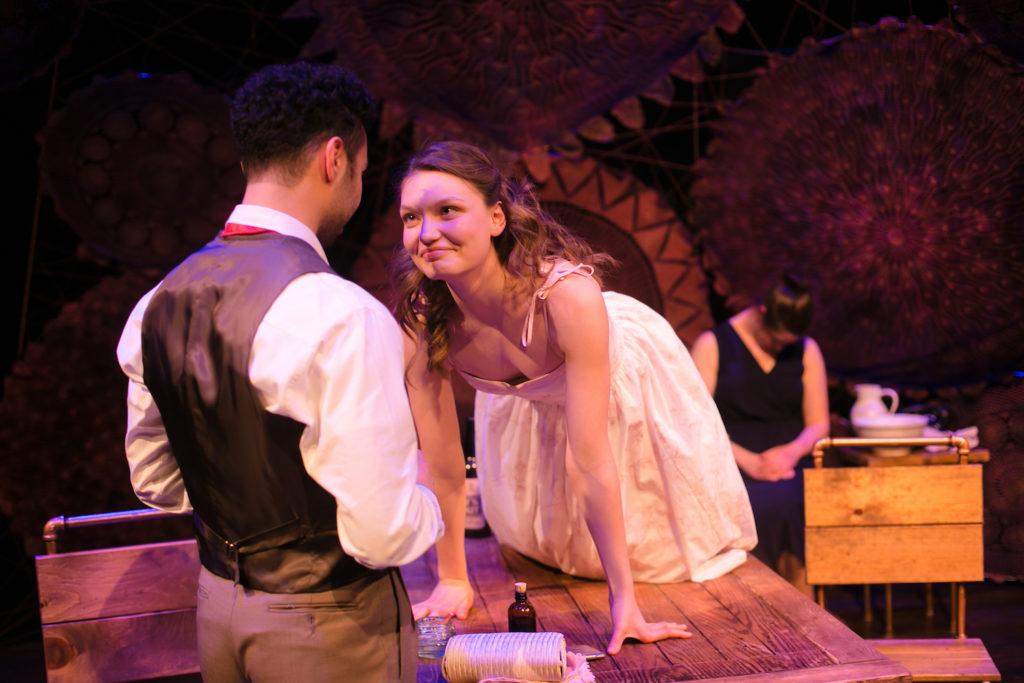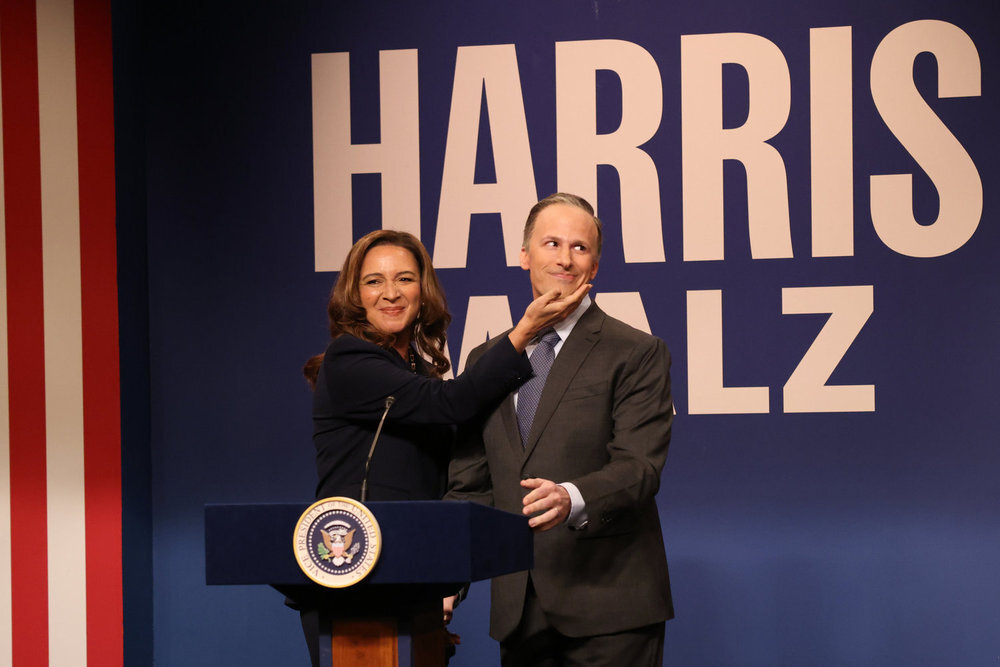By Priya Amin, news staff
“After Miss Julie,” an adaptation by Patrick Marber of August Strindberg’s “Miss Julie,” is currently being performed by Northeastern’s Department of Theatre as part of the Women of Anarchy series.
Though the series is called Women of Anarchy, “After Miss Julie” is scarcely about dismantling the government. Rather, it is about finding a sense of empowerment through overcoming what is expected.
“I’m not sure I totally 100 percent love the Women of Anarchy title,” said Rosa Procaccino, the actress portraying Miss Julie. “When women go outside this mold of what a woman is, they’re seen as crazy, and I think that’s a very dangerous thing to do.”
The original play, written in 1888 in reaction to Henrik Ibsen’s “A Doll’s House,” which sought to reinforce the traditional roles of women, was hardly anarchal at all.
“Strindberg was a misogynist. He thought ‘A Doll’s House’ was terrifying because it celebrated the destruction of the family,” said A. Nora Long, director of “After Miss Julie.” “‘Miss Julie’ is almost a cautionary tale about what happens when women step out of line and follow their sexual desires and transgress the social order as it now stands.”
Despite Strindberg’s intention, Julie, the principle character, appears as an empowering figure. While Julie’s stepping out of line wreaks havoc on the lives of others, it’s a wake-up call for her about the injustice gender and class differences create.
“It’s a very in-your-face play about how manipulation, power [and] lack of freedom all come from either gender or class or something inherent,” said Kaya Simmons, the actor portraying John, Julie’s love interest. “At the very basic level, how I relate to John is as someone who’s been stuck by a system.”
Often Americans trap themselves in the false hope of the American Dream, which seemingly guarantees prosperity for hard work. “After Miss Julie” reminds audiences of the reality that upward mobility is not as feasible as it appears to be.
“Americans love to deny class structure and social hierarchies and all of that,” said Carla McDonough, the actress portraying Christine, John’s fiancee and Julie’s maid. “A lot of prejudice is connected to class; it still exists and it’s really present in the United States. We have a complex class system that affects everyone and can be really toxic like it is in ‘After Miss Julie.’”
Though “After Miss Julie” takes place in England in 1945, there are many similarities to the current climate in the United States. The play is set the night after an election that causes a drastic change in the government and the social environment.
“The play asks the question about how much does something like an election really change the way individuals interact, in ways we might not expect,” Long said. “The way that we talk about women’s sexuality has not changed as much as we would like to think, [as] the last six months and the election have made abundantly clear.”
While Julie struggles to be herself in a society which frowns upon the promiscuity of women, John struggles to assert himself while constantly having to comply to the man he serves and Christine devotes herself to doing exactly what is expected of her, as a servant and as a wife to be. Gender, sex and class affect these characters’ opportunities and actions in different ways.
Considering the systematic oppression that impacts many individuals under the current presidential administration, “After Miss Julie” is an almost perfect contemporary fit.
“I think the idea that an election has the ability to surprise people across the socioeconomic spectrum and to encourage feelings and actions that have already been there are particularly resonant right now,” Long said.
“After Miss Julie” will be performed at the Studio Theatre in Curry Student Center through this Sunday. Tickets are $8 and are available for purchase through the myNEU portal.
Photo courtesy Grant Terzakis









